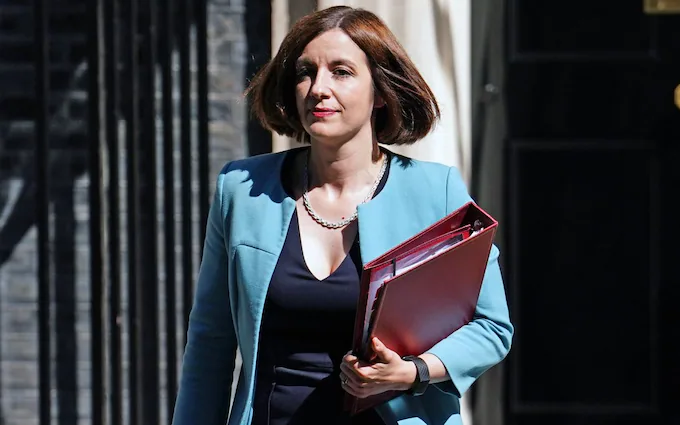UK Education Secretary, Bridget Phillipson, announced a significant policy shift for English universities, marking the first rise in tuition fees in eight years. The increase, set to take effect in April 2025, will raise annual tuition costs from £9,250 to £9,535, a move intended to bolster universities amid mounting financial challenges, including a freeze on domestic fees, declining international student numbers, and the strain of inflation.
The last tuition hike occurred in 2017, under Prime Minister Theresa May’s Conservative government, when fees rose from £9,000 to £9,250. This was preceded by a major increase in 2012, during David Cameron’s administration, which controversially raised fees from £3,375 to £9,000. Since 2017, fees have been frozen, prompting recent calls from educational leaders for urgent adjustments to sustain institutions.

Phillipson emphasized that this difficult decision aims to secure higher education’s future. “It is no use keeping tuition fees down for future students if the universities are not there for them to attend,” she stated before the House of Commons. The adjustment is intended to address immediate funding shortfalls without increasing monthly loan repayments for graduates, which are income-based. In addition, student maintenance loans will be raised in line with inflation, providing students with an extra £414 annually starting in the 2025–26 academic year to help cover rising living costs.
Read More: Breaking: Nigerian-born Kemi Badenoch emerges new UK Tory leader
The fee increase also introduces a lower cap of £5,760 for foundation degrees, an attempt to make these shorter programs more affordable. This move aligns with recommendations from Universities UK (UUK), which represents 141 universities and recently advocated for tuition to reflect inflation. In a September report, UUK revealed that teaching funding per student is at its lowest point since 2004, with the current £9,250 fee now equivalent to just £5,924 in 2012 terms.
UUK also pressed the government to reintroduce grants for low-income students to offset costs beyond tuition fees. The Institute for Fiscal Studies projected that, without intervention, fees would need to increase to £10,500 by 2029, while leaders at institutions such as King’s College London suggested an optimal range of £12,000 to £13,000 annually to meet operating costs.
International student enrollment, a critical revenue source for many UK universities, has also dropped due to recent visa restrictions. The Home Office reported a 16% decrease in student visa applications between July and September, which it attributed to new limits on international students bringing family members unless enrolled in postgraduate research or government-funded programs. Since international students pay significantly higher tuition fees, this reduction poses additional financial risks for institutions.
Adding to these challenges, the Office for Students (OfS) warned in May that nearly 40% of English universities could be operating at a financial loss in the 2023/24 academic year, raising concerns about the sector’s viability.
Phillipson framed the tuition increase as part of a broader vision to “fix the foundations” of English higher education, ensuring that institutions remain sustainable for future generations. While likely to provoke debate among students and university leaders, the government views these measures as essential to maintaining the quality and accessibility of English education.
For now, universities and students alike are bracing for change, with many hoping that the adjustments will ultimately enhance stability and continue to make the UK a competitive destination for global higher education.



